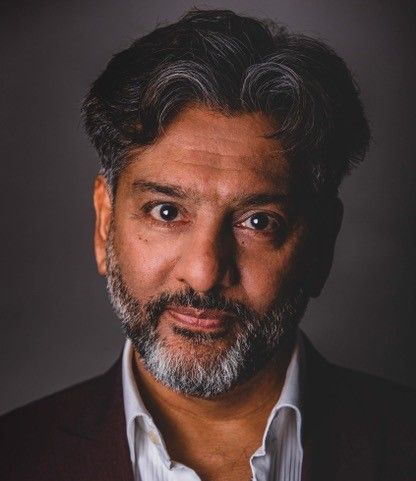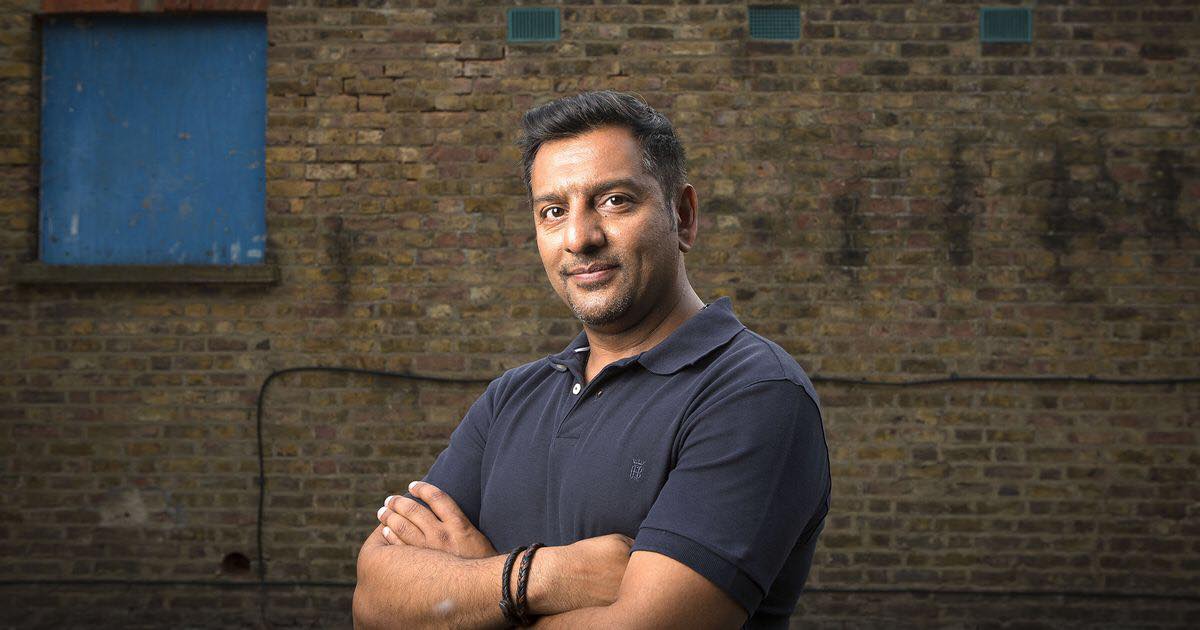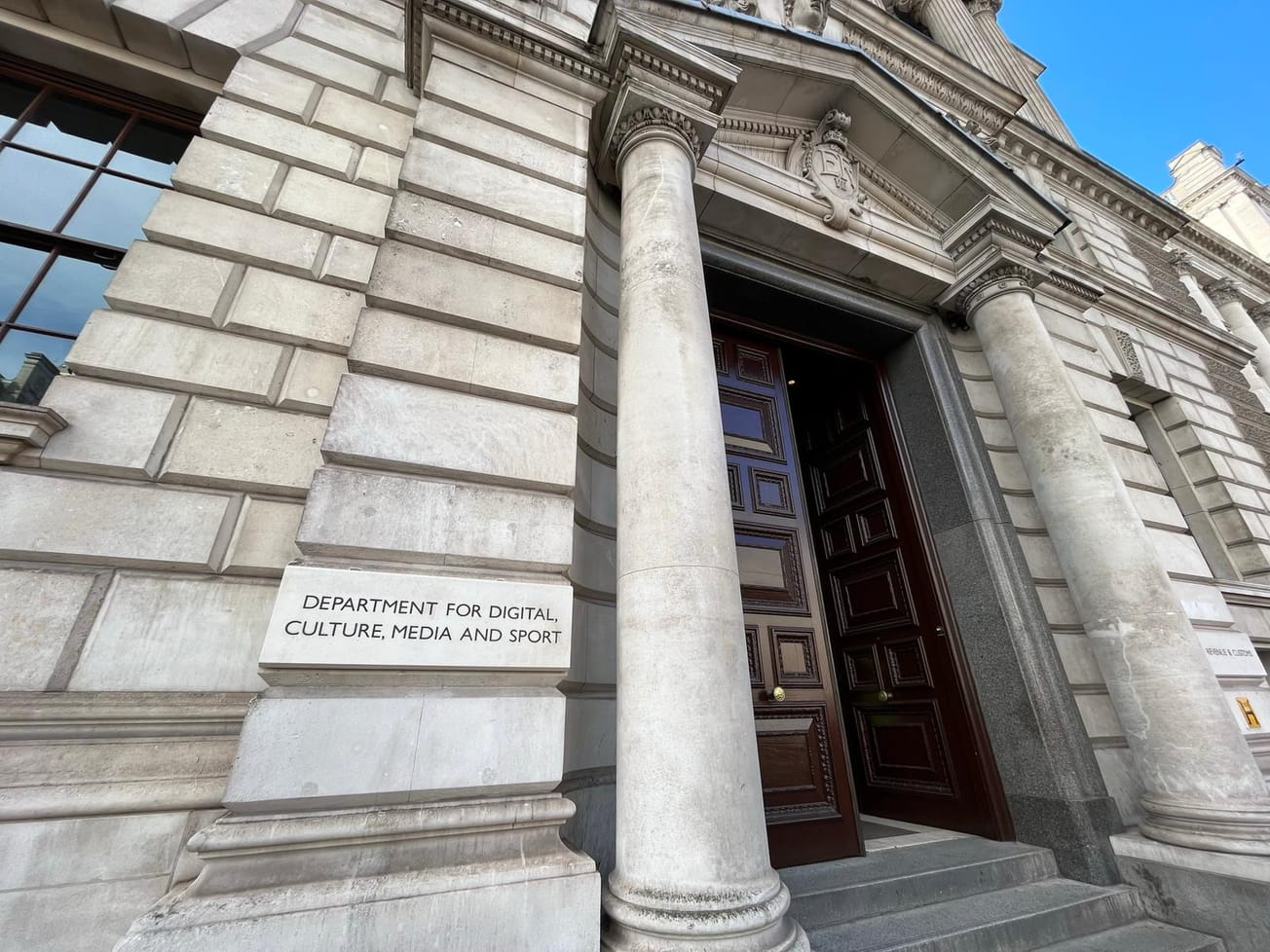By Holly Beaumont, Investigations Editor
You might recognise Nitin Ganatra for playing the well-loved Postman, Mr Masood, on Eastenders for ten years. What you might not know is that he defied every expectation to get there. Coming from a corner shop in a Coventry neighbourhood then rife with racism and recession, Nitin was told he would not amount to anything.
However, the first step on his road to success was his admission to study drama at the University of Bristol as a young man. I sat down with Nitin in his North London home to discuss all things Bristol and navigating the challenges posed to British Asian actors.
‘I was told “you haven’t got a chance in hell.” My careers teacher laughed at me when I said I was going to go to University,’ he said with pride. ‘I suppose I was so fuelled by anger. I will show you f***ers. I am going to prove everyone wrong.’

When telling me about growing up in Coventry, Nitin described his childhood as ‘quite traumatic’. I asked him about the shift in moving from a traumatic environment to life in Bristol and whether he felt out of place in a new city.
‘I was too naive to worry about it. I was just so excited’, he admitted. ‘One of the biggest mind-blowing things for me was the amount of books. It was a great self-discovery to be around so much knowledge. At home my nearest library was a shed. For a year I was unstoppable.’
Confused, I asked him ‘Why only a year? What happened?’
‘I think it was at the end of my first year, I began to feel a bit alienated’, he said. As the only boy in his A-Level English class, the only BAME Drama student at Bristol, and a member of the only Asian family on BBC’s EastEnders at the time, Nitin is familiar with the feeling of tokenism.
‘It was at the end of my first year. That's when I suddenly began to feel my class and my culture.’ He talked to me about the difference between racism at home in Coventry compared to racism in Bristol. His understanding of racism was that it was ‘straightforward and blatant’ and these familiar ideas made him feel confused by the diplomacy of the ‘upper-class English politeness’ of his peers.
#tombaker is trending. Still my favourite #DoctorWho But.... if ever I were to play a Doctor.... pic.twitter.com/hc77KduZYB
— Nitin Ganatra (@GanatraNitin) August 18, 2020
‘When polite people are talking about race, they don't understand that it is the same as racism. If you do it in a sing-songy voice it doesn’t come across as racist but essentially you are still being racist.’ He goes as far to say that he felt ‘relieved’ after experiencing his first incident of overt racism in Bristol.
‘I was walking home by myself along Whiteladies. A van went past and it slowed down. The back doors of the van opened, and a bunch of Bristolians just started throwing bottles at me and calling me a “f***ing Paki.” I think I may have freaked them out a little bit because I was like – “Yes! Finally, somebody called me a “Paki”! I feel more at home now,”’ he gestured with genuine excitement in re-enacting this.
This feeling of confusion around his peers was not limited to the white students, but also other Asian students in Bristol. ‘I didn’t fit in with the Asian community at Bristol. There's lots of medics, lots of engineers, lots of dentists who thought I was a freak. “What do you mean you're doing the arts? You don't have a car?” And so, they were the privileged Asian kids who I didn't fit in with either.’
Despite these challenges, Nitin leant on his mantra to carry him through. ‘I’ve always just run by this philosophy: be the best so they can't ignore you.’ Having been told ‘be realistic, you’ll end up being in the family business,’ choosing to pursue an unfamiliar career like acting with an uncertain regularity of work, was a bold decision.
Given the challenges posed by his race at University, I asked Nitin if the same challenges cropped up in his working life.
‘So you’re playing the doctor that comes in and says, “We've had a look at your chest X-rays. It's not good.” Now, you two white people go over there and win your BAFTA, because you've got the story. We all play doctors, we all play shopkeepers,’ he said.
‘Asian actors used to get together and try and have a competition to see how many shopkeepers they played, how many doctors they played and hence we coined the professional term of “rent-a-Paki”. Because that's what we were; we were there for rent.’
The worry that your success is due to quota filling, rather than your hard work and talent is understandably frustrating. I asked Nitin how this has affected him. ‘You get a job and you’re not quite sure why,’ he says.
Nitin defied more expectations by being hugely successful this role
However, Nitin was able to use it to his advantage when he landed the role of Mr Masood on Eastenders in 2005. ‘When I first joined EastEnders, there hadn’t been an Asian family for five and a half years. Can you imagine no Asians in East London?’
‘Some Asian actors would try and fight our corner, but I was always of the opinion that you get the job and do it from the inside’. With the intention of trying to effect change, Nitin began this immediately. ‘They did ask me if I would consider doing an Indian accent. At which point I said “but the character is Pakistani?”’
‘So, we decided to subvert it. There was a scene when Nina (Zainab Masood) and I were moving in and I said “you know what we need to do? We need to kiss at this point.” What we did by kissing on the lips in the street was we broke a couple of rules because you won’t see Asian’s kissing on the street.’
‘It's just a cultural thing where you kind of go “cover yourself up a little bit”. But in breaking that rule, it opened the door for the writers because it sends out a little signal that you don’t have to keep writing a Pakistani family. What you can write is characters now.’
New self portrait. It’s the lockdown yoga phase. pic.twitter.com/vRobF4seg2
— Nitin Ganatra (@GanatraNitin) July 16, 2020
Nitin’s decision to do this set the ball in motion on what would become an historic family on the show. ‘That was our way of somewhat rebelling against what possibly could have been another stereotypical family. And then to their credit, they did the first big gay-Muslim storyline, which had a huge impact.’
Nitin defied more expectations by being hugely successful in his role. ‘We achieved so much. I realised that that had happened when I was getting people of all colour, of all culture and all class saying, “I love Masood, I can relate to him.”’
Nitin continues the fight of British Asian actors by, in his words, ‘never being complacent’. Dwelling on his time as a student at Bristol, he acknowledges that his experience was not without its challenges, although it was invaluable in shaping the actor he is today.
‘It provided that opportunity for me to try out stuff and in trying out stuff you find yourself,’ he said. ‘We worked really hard. We were constantly on fire. And for me, I realised that this is what I want for the rest of my life.’
Featured Image: Epigram / Nitin Ganatra









